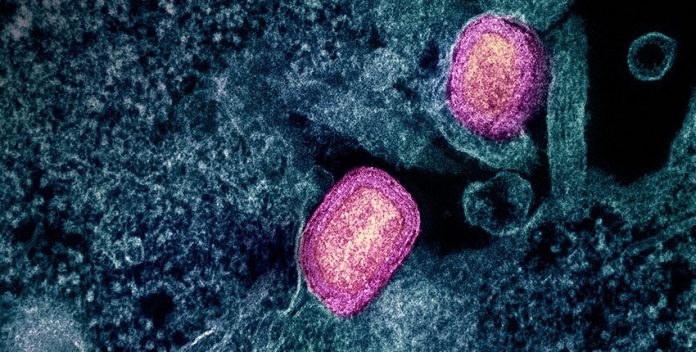
On Aug. 14, the World Health Organization (WHO) declared the latest mpox outbreak in Africa a public health emergency of international concern.
While the virus is not new, its behavior warrants vigilance and raises critical questions about infectivity, transmissibility, and the optimal preventive measures to halt the spread of the pathogen even further.
To make sense of the latest developments, Harvard Medicine News spoke with Daniel Kuritzkes, the Harriet Ryan Albee Professor of Medicine at Harvard Medical School, chief of the division of infectious disease at Brigham and Women’s Hospital, and a member of the Massachusetts Consortium on Pathogen Readiness.
The WHO declared mpox, formerly called monkeypox, a public health emergency of international concern. The epicenter of the outbreak is in the Democratic Republic of the Congo (DRC) and other African countries, but we have now seen a case in Europe. How worrisome is this?
We know that the global outbreak of mpox in 2022 had its origins in Africa, where mpox has been endemic for decades.
The rise in cases in the DRC and neighboring countries should concern us all because we are a globally connected community through travel and migration. Moreover, an increase in mpox cases in Africa deserves our attention on humanitarian grounds.
We cannot ignore the impact of significant epidemics merely because they occur in parts of the world that seem remote to us.
Now that the ability of mpox to spread through sexual contact has been recognized, there is some concern that we could see an increase in cases spread through sexual networks, particularly among individuals who have large numbers of sexual partners.
There was an outbreak of mpox in 2022. Is there anything about the evolution or behavior of this new iteration of the virus that is particularly worrisome? Has the virus’s transmissibility or infectivity changed?
The strain circulating in the DRC (Clade I) is more virulent, meaning that it’s more likely to cause severe disease than the strain seen in Nigeria (Clade II) that was responsible for the 2022 outbreak and continues to circulate at a low level in the U.S. and Europe.
The majority of Clade I cases in the DRC occur in children and adolescents under age 15, and the mode of transmission appears to be through direct contact with infected individuals. But cases are reported that appear to have been transmitted through sexual contact among men who have sex with men and in sex workers—this is new for Clade I.
To our best knowledge, is the virus still transmitted by human-to-human contact or are there hints of airborne transmission?
The major route of transmission remains close person-to-person contact, including sexual contact.
In some circumstances, heavily contaminated material such as bedding can cause infection, or contact with infected animals, which is unlikely to occur in the U.S. Airborne transmission is very uncommon.
Is the new strain readily preventable through vaccination and do we have reliable vaccines?
It is too early to say with certainty with respect to the currently circulating strains, but in general mpox is preventable with the smallpox vaccine.
There is compelling evidence that suggests the rise of mpox in central and West Africa over the last few decades correlates with the decline of immunity to smallpox in the population as a new generation was born and came of age without ever being vaccinated against smallpox.
What do we know about how prone this virus is to mutation and vaccine resistance?
Pox viruses are DNA viruses, and therefore intrinsically less likely to accumulate mutations, compared with RNA viruses such as HIV, influenza, or SARS-CoV-2.
That said, whenever there are very high rates of transmission there is the possibility for rare variants to emerge that are resistant to the immunity that has developed in a population over time, whether through past exposure or through vaccination.
If you care about inflammation, please read studies about turmeric: nature’s golden answer to inflammation, and what to eat to reduce chronic Inflammation.
For more health information, please see recent studies about how a plant-based diet could help ease inflammation ,and Vitamin D deficiency linked to increased inflammation.



